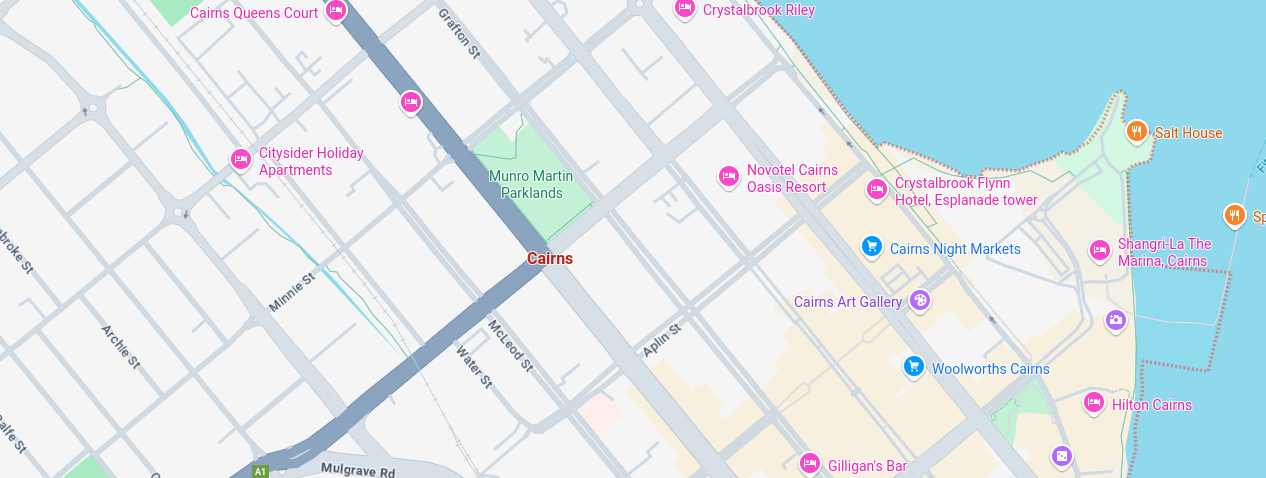How to Optimise Your Website for AI Tools Like ChatGPT

How to Optimise Your Website for AI Tools Like ChatGPT
The way people find businesses online is shifting. With tools like ChatGPT, Google Gemini, and Microsoft Copilot answering more of our questions directly, your website is no longer just for human visitors. These AI tools scan, summarise, and repurpose content to help users get quick answers.
For local businesses in Cairns — whether you’re a real estate agent, lawyer, or café owner — this means your website content needs to be more helpful, structured, and accessible than ever before.
Here’s how to make sure your site is ready.
Write in Plain Language That Real People Use
AI tools are trained on real human language. If your content sounds natural, clear, and helpful, it’s more likely to be correctly interpreted by AI tools and more useful to your customers.
For example, instead of saying “We provide bespoke culinary experiences,” a café website could simply say, “We offer private catering for events in Cairns, including weddings and birthdays.”
Aim for:
Short, clear sentences
Everyday words instead of industry jargon
A tone that matches how you speak with customers in person
This isn’t about dumbing things down. It’s about making your content easy to understand on the first read — for both people and machines.
Structure Your Website So AI (and Humans) Can Navigate It
Search engines and AI tools prefer websites that are well-organised. Clear structure helps them understand what each page is about and what topics you’re an expert on.
Start with:
One main heading per page (your H1 tag)
Subheadings to break content into sections (H2 and H3 tags)
Bullet points or numbered lists to make key points easier to scan
Logical grouping of topics — for example, group all your services under a Services page, with a separate page or section for each one
If you’re a solicitor in Cairns, you might have pages or sections for family law, wills and estates, conveyancing, and so on, rather than trying to cover everything in one long block of text.
Answer Common Questions on Your Website
People often use AI tools to ask specific questions, like “How much does it cost to hire a photographer in Cairns?” or “Can I get a home loan on a casual contract?”
If your website includes clear answers to questions like these, there's a better chance those answers will be picked up and reused — by AI tools or even directly in Google search results.
Try adding:
An FAQ section on your service pages
Blog posts that answer common questions in more depth
Headings written in question form (e.g. “Do I need council approval to build a deck in Cairns?”)
Aim to answer each question clearly in the first sentence, then expand with extra detail. The clearer your answer, the more useful it is to both search engines and users.
Use Schema Markup to Help AI Understand Your Pages
Schema is a type of code that gives extra context to your website content. While your visitors won’t see it, it helps search engines and AI tools understand exactly what your site is about.
Some useful schema types for local businesses include:
FAQ schema for your question-and-answer sections
Local Business schema for your business name, address, hours, and contact info
Service schema to describe what you offer
Article or BlogPosting schema for your blog content
If you run a real estate agency, for example, schema markup could clarify that you offer “property sales in Edge Hill, Whitfield and surrounding suburbs,” which helps AI tools place you more accurately in search results.
Be Credible and Citable
AI tools prefer to reference trustworthy, clearly written content from reliable sources. That means it’s worth taking the time to make your business look real and reputable.
Make sure your site includes:
An About page that tells your story and shows your experience
A Contact page with up-to-date details
Business photos (not just stock images)
Links to your business’s social media or Google listing
These steps also help build trust with human visitors, which is just as important.
If you're a bookkeeper in Cairns, for example, adding a few lines about how long you've worked in the region, the types of businesses you help, and your qualifications can go a long way.
Build Out Your Content Around Specific Topics
AI tools look at your site as a whole. A single page with a short blurb on a topic isn’t enough. To stand out, you need to show depth and relevance across related content.
This could mean:
Creating a “How we work” section alongside your main service page
Writing blog posts that explain parts of your service in more detail
Linking related pages together to show the connections
For example, a Cairns real estate agent could publish supporting content like “Top tips for first-home buyers in Queensland” or “How to sell a property during the wet season.” This helps position your site as a useful resource — not just a sales page.
Test How Your Content Performs in AI Tools
You can try asking ChatGPT or other AI tools questions that your potential customers might ask, such as:
“What’s the best café in Cairns for vegan food?”
“How do I contest a parking fine in QLD?”
“Can I get a fixed-price conveyancing quote in Cairns?”
Then check whether your business is mentioned or if your competitors are. This can show gaps in your content or areas where you could be more helpful and specific.
If you’re not showing up, review your content to make sure you’re answering the right questions in the right way.
Final Thoughts
Optimising for AI tools like ChatGPT isn’t just about following technical rules. It’s about being clear, useful, and easy to understand. That’s good for AI — and it’s even better for your customers.
By improving how your website communicates, adding structure and detail, and answering real questions, you’re setting your business up to be found and trusted across both search engines and AI tools.
If you’d like help reviewing or updating your website with these tips in mind, get in touch.




